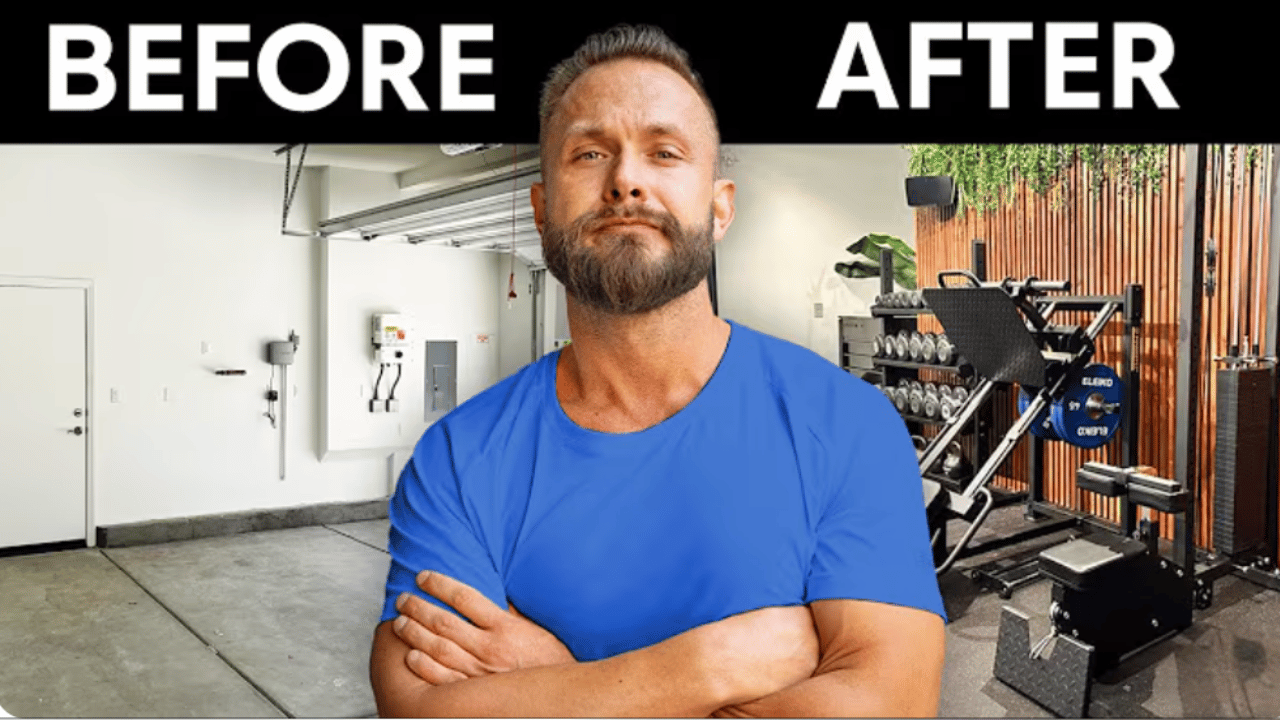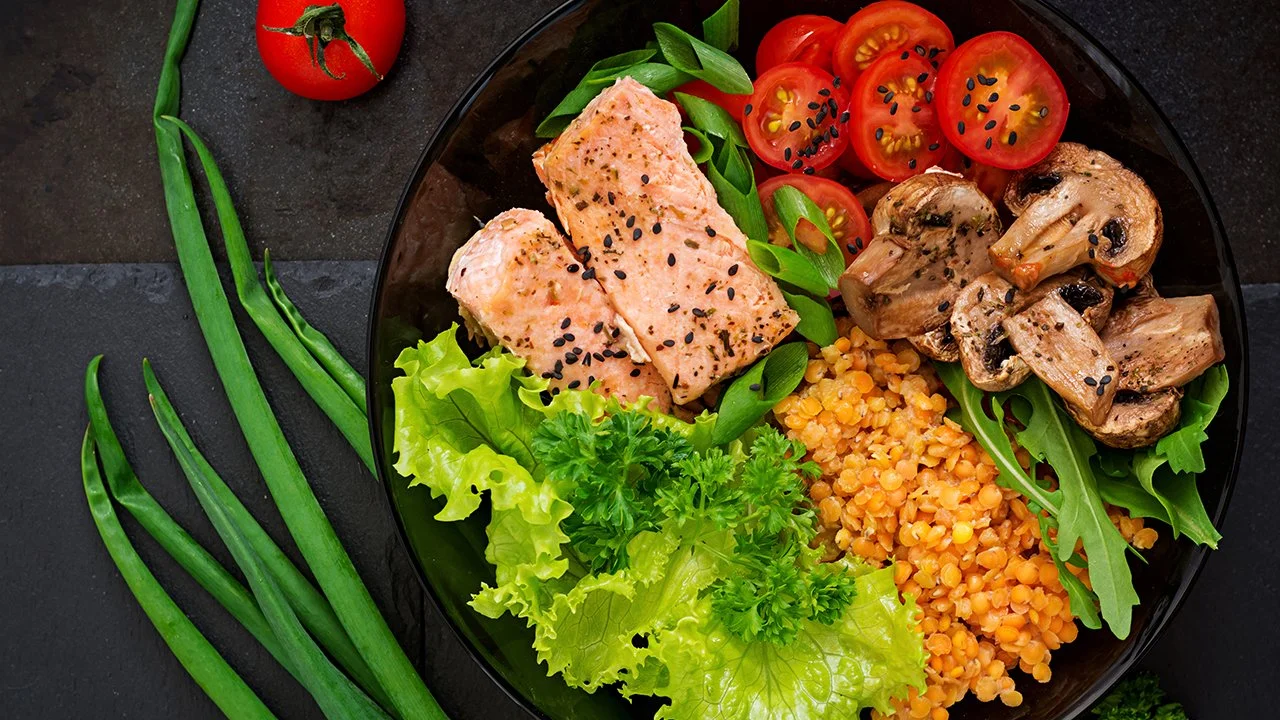Should You Focus on Diet or Exercise to Build Muscles?
Building muscles isn’t just about lifting weights in the gym; it’s a delicate balance between proper training and nutrition. If you’re serious about increasing muscle mass and want to know if you should prioritize diet or exercise, this article will break it down for you. We’ll look at how both factors work together to support muscle growth and provide actionable insights on how to optimize both for the best results.
As a trainer with over two decades of experience, I've seen many people focusing too much on one aspect, thinking it’s enough to get the job done. But the reality is that without a proper diet to fuel your muscles and the right training to challenge them, you won’t see the gains you're working so hard for.
The Role of Strength Training in Building Muscles
When it comes to building muscles, strength training is undeniably crucial. But not all exercises are created equal, and how you train matters just as much as how often. Here’s why the right training approach is essential for muscle gains.
1. Training to Build Muscle Mass
To build muscle mass, you need a structured plan that balances volume, intensity, and rest. Whether you’re doing resistance training or using your own body weight, the goal is to stimulate your major muscle groups consistently.
Start by focusing on compound movements, such as squats, deadlifts, and bench presses. These compound exercises engage multiple major muscles at once, which increases overall muscle recruitment and provides a more effective stimulus for growth. For example, a bicep curl may isolate one muscle, but a deadlift works your legs, back, and core simultaneously.
If you’re just getting started, focus on proper technique and proper form. Many beginners are eager to lift weights as heavy as possible, but doing so without mastering the basics can lead to injury and muscle losses rather than gains. The key is to train smart. As your form improves, gradually increase the weight to maintain steady progress.
2. Progressive Overload: The Secret to Muscle Growth
Progressive overload is the cornerstone of muscle hypertrophy—the process of muscle enlargement. It involves progressively increasing the amount of weight you lift, the number of sets, or the number of reps over time. The goal is to constantly challenge your muscles so that they adapt by growing stronger and larger.
This means that whether you're lifting a heavier load or doing more reps, you're pushing your muscles beyond what they're used to, stimulating muscle growing signals. Without progressive overload, your body will plateau, and you’ll stop seeing results.
However, be cautious not to push too hard, especially when you're still learning the movements. Increasing volume too fast can lead to injury and, as a result, muscle losses. Find the balance between pushing yourself and ensuring that you're not compromising proper form.
3. Training Frequency and Rest
The frequency of your training is another critical aspect of building muscle. Aim to train your major muscle groups at least twice per week. While working out every day may sound appealing, your muscles need time to recover and repair. Muscle growth happens during recovery, not during the workout itself.
On average, resting for 1-2 minutes between sets allows you to regain strength for the next set. Resting longer can be counterproductive, while not resting enough prevents you from lifting as heavy or completing as many reps with proper form.
The Role of Diet in Building Muscles
While training is essential, it’s only half of the equation. Your diet is equally important to fuel your workouts and support muscle growth. Without the right nutrients, all the time you spend in the gym might not lead to the results you're hoping for.
1. Protein: The Building Block of Muscles
If you want to build muscles, protein should be your top priority. When you exercise, your muscle fibers break down, and protein helps repair and rebuild them, leading to growth. I recommend consuming about 1 gram of protein per pound of body weight per day to optimize muscle repair and growth.
A good rule of thumb is to spread your protein intake throughout the day, ideally eating around 30-50 grams of protein per meal. Foods like chicken, eggs, lean meats, and plant-based options like lentils and beans are great sources. If you’re not hitting your protein target, consider adding a protein shake to your day.
One key thing to note is that you cannot be in a protein deficit and expect to build muscle mass. Your body needs to be in a positive protein balance for muscle-building to occur.
2. Carbs and Fats
While protein builds muscles, carbohydrates and fats provide the energy necessary for those intense workouts. Carbs are particularly important because they replenish glycogen stores, the fuel your muscles use during resistance and strength training. Eating the right amount of carbs ensures you have the energy to train hard and recover properly.
Fats, on the other hand, play a critical role in hormone production, including growth hormone, which is essential for muscle repair and growth. The key is to balance carbs and fats based on your personal metabolism and activity levels. Some people perform better on higher carbs, while others may need a bit more fat to feel good and maintain energy levels.
Diet vs. Exercise: Which Should You Focus on More?
So, should you focus on diet or exercise when it comes to building muscles? The truth is, both are equally important, and you can’t have one without the other.
If you focus too much on training but neglect your diet, your body won’t have the nutrients it needs to repair and grow. On the flip side, eating the perfect diet won’t build muscle if you’re not putting in the work at the gym to challenge and stimulate your muscles.
It’s about finding the right balance between the two. Training is the stimulus for growth, while nutrition provides the building blocks your body needs to recover and build new muscle. To put it simply: train hard, eat well, and rest smart.
The Magnus Method Approach
At Magnus Method, we believe in a holistic approach to increasing muscle mass. It’s not about focusing on one area while neglecting the other. Our training programs are designed to incorporate all aspects—strength training, progressive overload, proper nutrition, and recovery.
For those new to building muscle, I recommend starting with a structured workout plan that focuses on major lifts like squats, deadlifts, and presses. Combine this with a well-balanced diet that provides plenty of protein, carbs, and healthy fats. Monitor your progress weekly, and make adjustments as needed.
Ready To Gain Muscle?
If you want to build muscles effectively, there’s no shortcut—you need both a proper training regimen and a solid nutrition plan. Focus on lifting weights with a progressive overload strategy, training major muscle groups consistently, and fueling your body with adequate protein, carbs, and fats to support recovery and growth.
Whether you're just getting started or are already experienced, remember that muscle-building takes time. It’s a long-term commitment that requires consistency, but with the right combination of training and diet, you'll see steady muscle gains and overall improved fitness.
Ready to get serious about building muscle? Download the Magnus Method app for personalized training programs, nutrition advice, and more to help you reach your fitness goals!




























